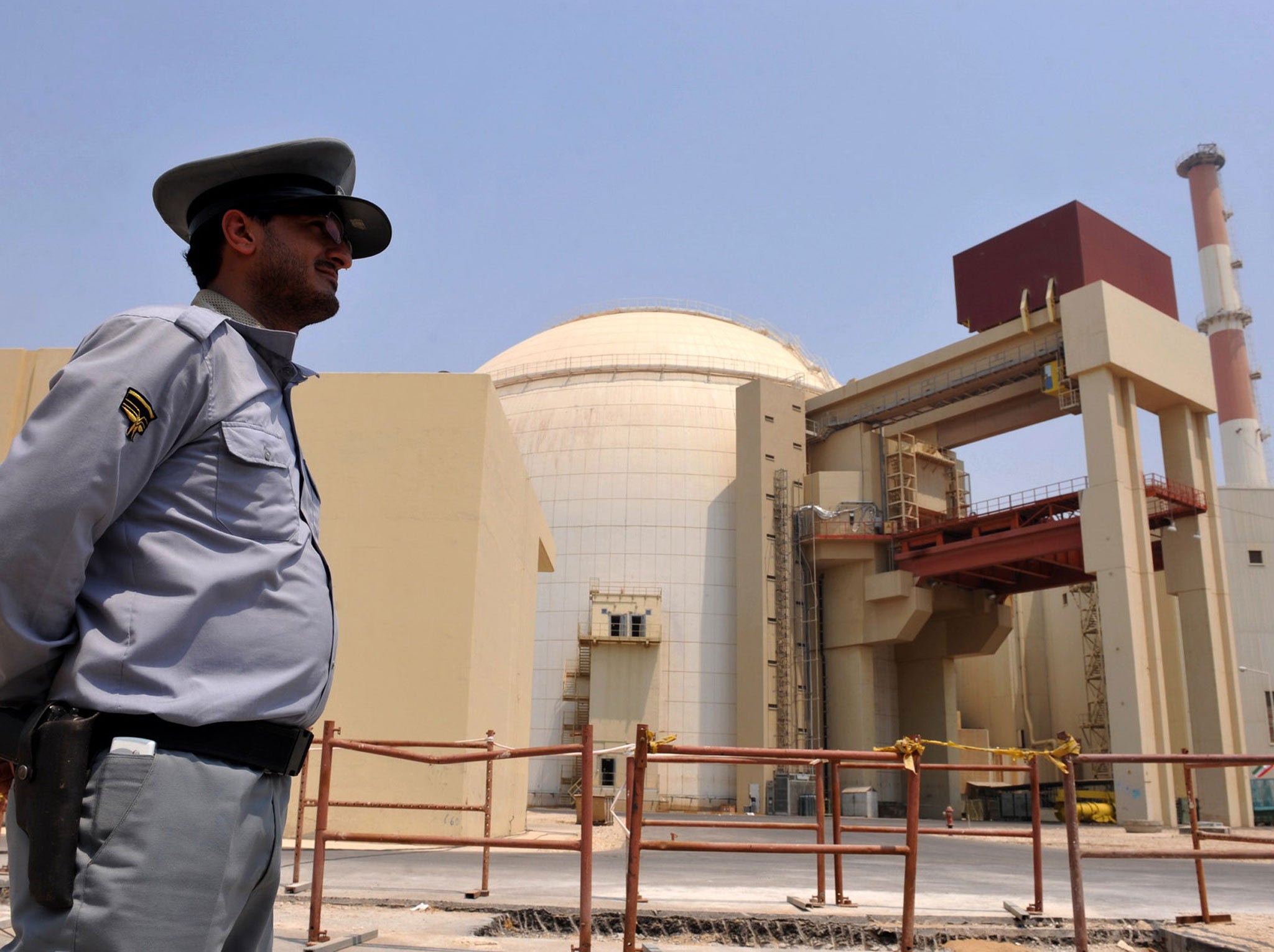Leave Iran in peace to develop its bomb
The Middle East would be a safer place with a nuclear Iran


The election of Hassan Rowhani as Iranian President has raised hopes in the West that the attempts to persuade his country to abandon its supposed ambition to build nuclear weapons can soon be resumed with greater hope of success. If it can be proved beyond all doubt that Iran has no nukes and no way of making them, it is argued, the Middle East will be a far safer place than it is now.
The truth, however, is the precise opposite. The way things stand, it is very possible that Iran will sooner or later find itself targeted in a new war. The only thing that would be sure to prevent that is if Iran were to obtain a nuclear deterrent. They should be allowed to get on with it.
As both Kim Jong-Il and Colonel Gaddafi in their different ways discovered, the only sure way to prevent the US and its cohorts from destroying your country and making you die in a ditch or at the end of a rope is the nuclear way. Why does North Korea survive, despite its grotesque failings in every department other than defence? There is only one explanation. A nuclear arsenal is the contemporary equivalent of medieval city fortifications. Without it you are naked.
It might be argued that the world would be a better place if the workers’ paradise of North Korea had already passed into history. But that raises the question of what would take its place. And that is the nub of my argument.
The rules of intervention changed dramatically after the Cold War, with the President Bush Snr’s declaration in 1990 of a “new world order”. With the Russians down and out, the US could do what it wanted, and bully and cajole its allies into following its lead. The hoary principle of a genuine casus belli could be discarded. The world could be remade, with a far freer hand.
Twenty years on, we see the results of that policy in the endless martyrdom of Afghanistan and the slow and bloody destruction of Iraq. Toppling these regimes, such as Libya’s, was not so hard. But instead of a new, just state there was anarchy, fragmentation, social breakdown, sectarian polarisation and the oppression and flight of minorities. They are failed states in the making.
Syria is moving in the same direction – and as our leaders strive to accelerate the process, it dawns on the rest of us that even a horrible police state like Assad’s is preferable to the Iraq-style chaos that our interventions leave behind. That is particularly true for those belonging to religious and ethnic minorities.
Yugoslavia was the laboratory for “new world order” interventionism. Twenty years ago, Douglas Hurd, foreign secretary in John Major’s government, was fiercely criticised for refusing to let Britain get sucked into the Bosnian civil war. But today, after all the bloody history that has interposed, the careful words he chose to explain why resonate with sanity. In 1994, rejecting the Bush doctrine, he said, “We do not have a new world order. We have a traditional set of world disorders.” The previous year at the UN he insisted, “It is empty to pretend that we can impose peace with justice on every disorder or dispute outside our national borders.” And again: “Nato is not …an army of crusaders marching forward … to plant the flag of conquest on foreign soil.”
These wise words were not heeded at the time, and will not be heeded now: Messrs Obama, Cameron and Hollande are still flush with neo-imperial hubris, and if President Rowhani does not get his nukes built double-quick, an Iran war is still an eventual possibility.
The new world order, as Hurd pointed out, is a myth. Fair-handed world government remains a distant dream. In Afghanistan, in the absence of a functioning state, Pathan tribal chieftains have long been in the custom of building their homes in the form of defensive citadels. Nuclear weapons are the contemporary equivalent. Pakistan has just experienced a heartening democratic handover: if it had not had a nuclear deterrent, the US might well have been tempted to expand the Afghan war eastwards, with the usual disastrous consequences. Every state should have one.
Words of freedom
There he was, very poorly lit, on the stage of a London college: Min Ko Naing, “Conqueror of Kings”, the legendary leader of Burma’s democratic revolt, who emerged at the head of Rangoon’s students during the uprising of 1988. Jailed the following year, he was released in 2004. He was jailed again in 2006, and yet again in 2007 after sparking, with his comrades in the so-called “88 Generation”, the protests that mushroomed into the Saffron Revolution. No one except Aung San Suu Kyi has played a more significant role in Burma’s long, painful transformation, and unlike her he was severely tortured during the early stages of detention. Now he was in London for the first time ever with Ko Ko Gyi and others in the group.
Listening to him mildly saluting and thanking his supporters, it was hard to understand what all the fuss had been over this courteous, self-effacing Burmese in a longyi. But his brand of courage has no need to advertise itself. Besieged by supporters after his final release, he told them that all he wanted was to write poetry. Both Aung San and his daughter had similar dreams. But the literary life will have to wait.
Join our commenting forum
Join thought-provoking conversations, follow other Independent readers and see their replies
Comments